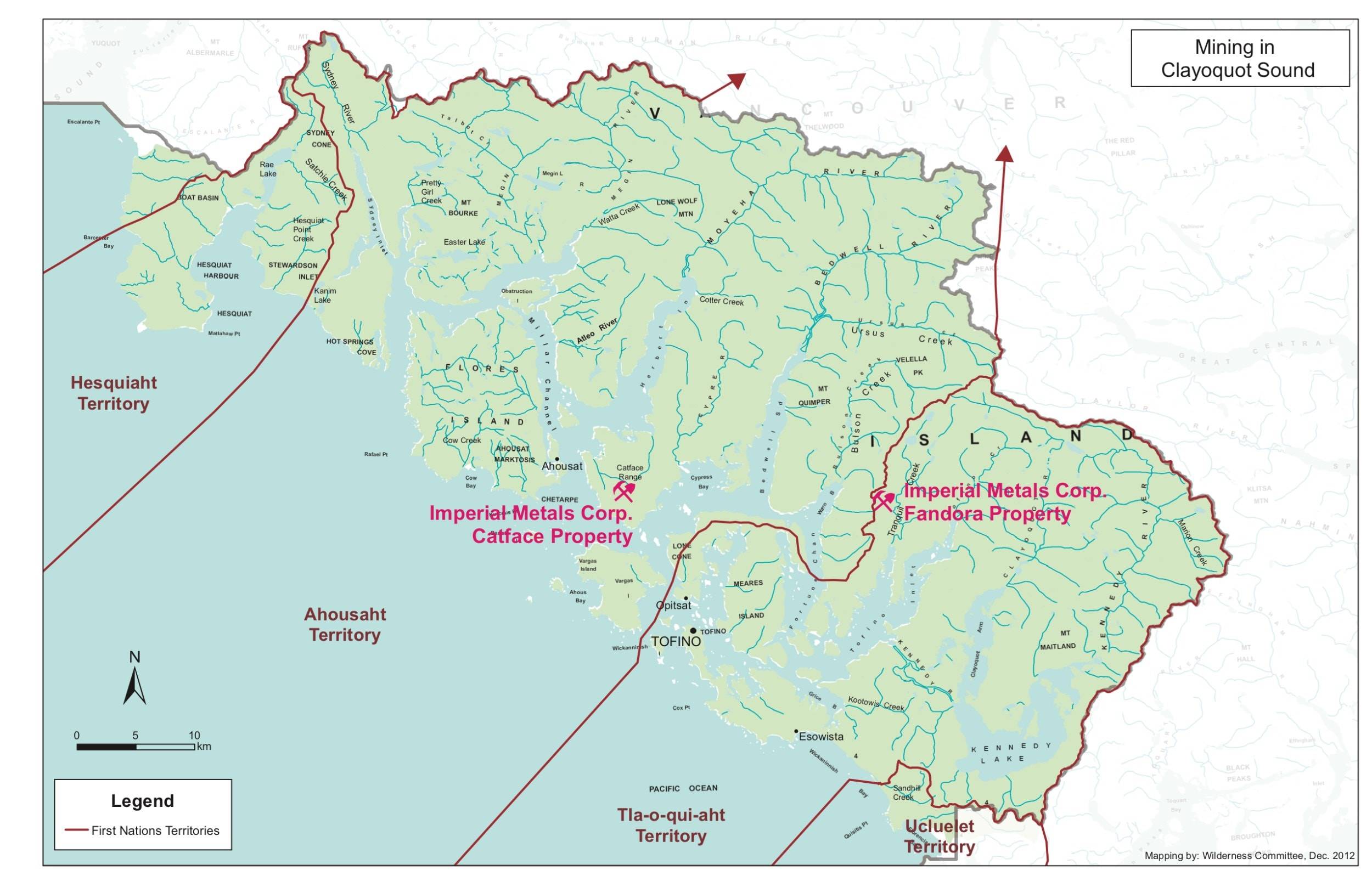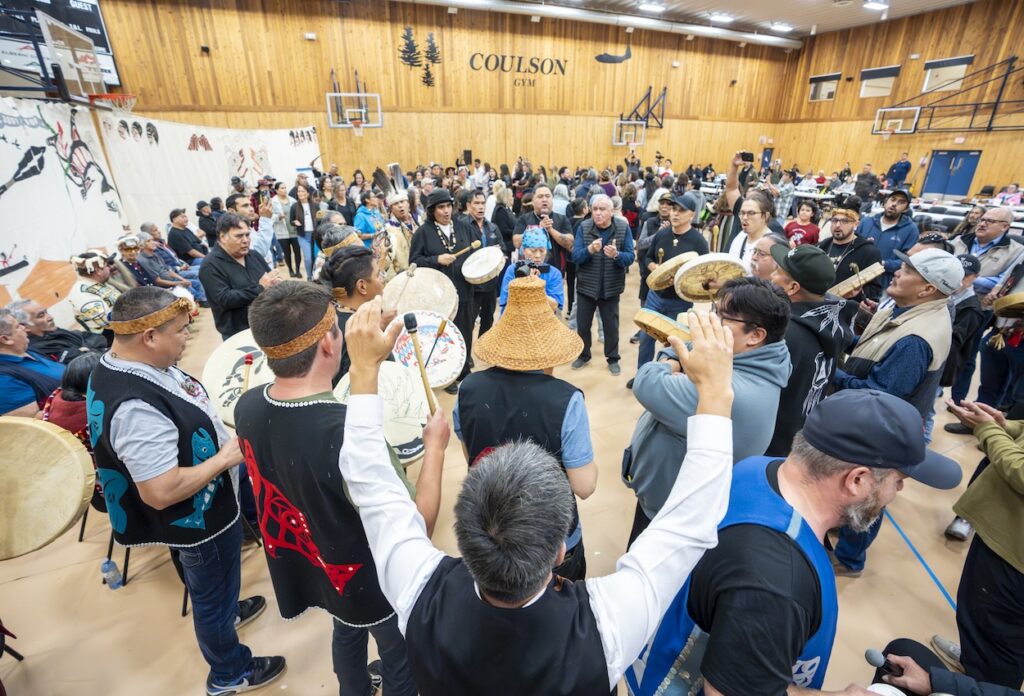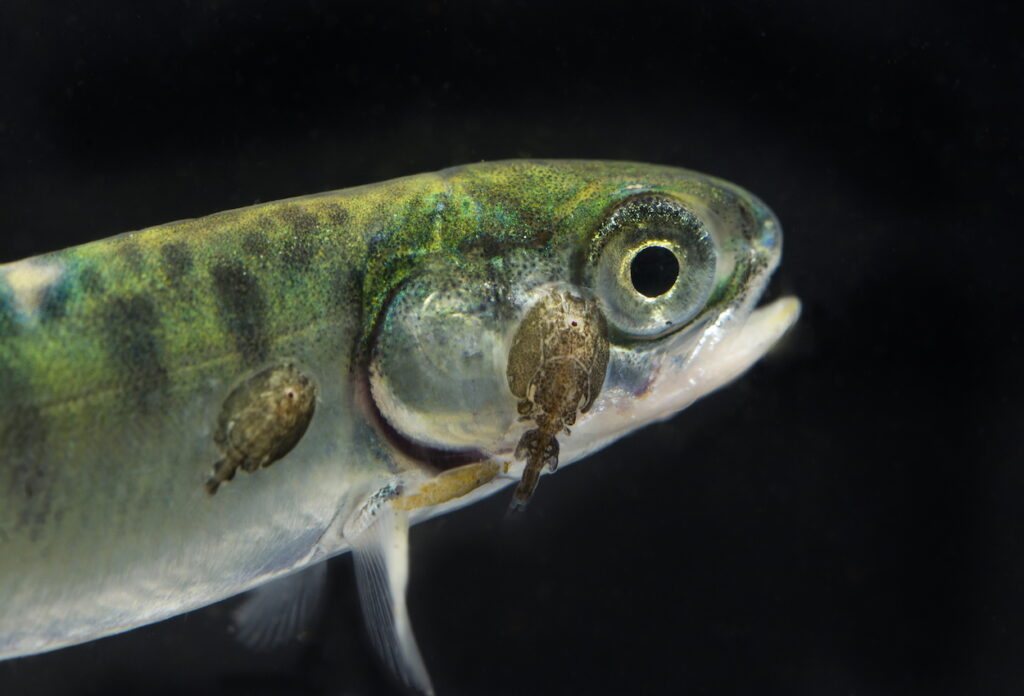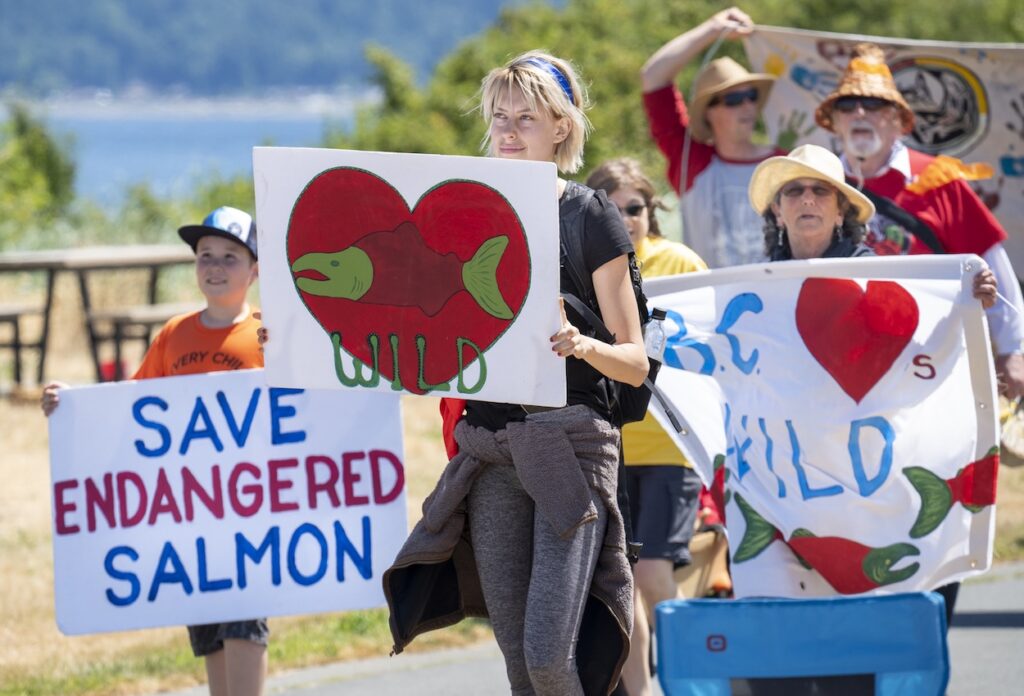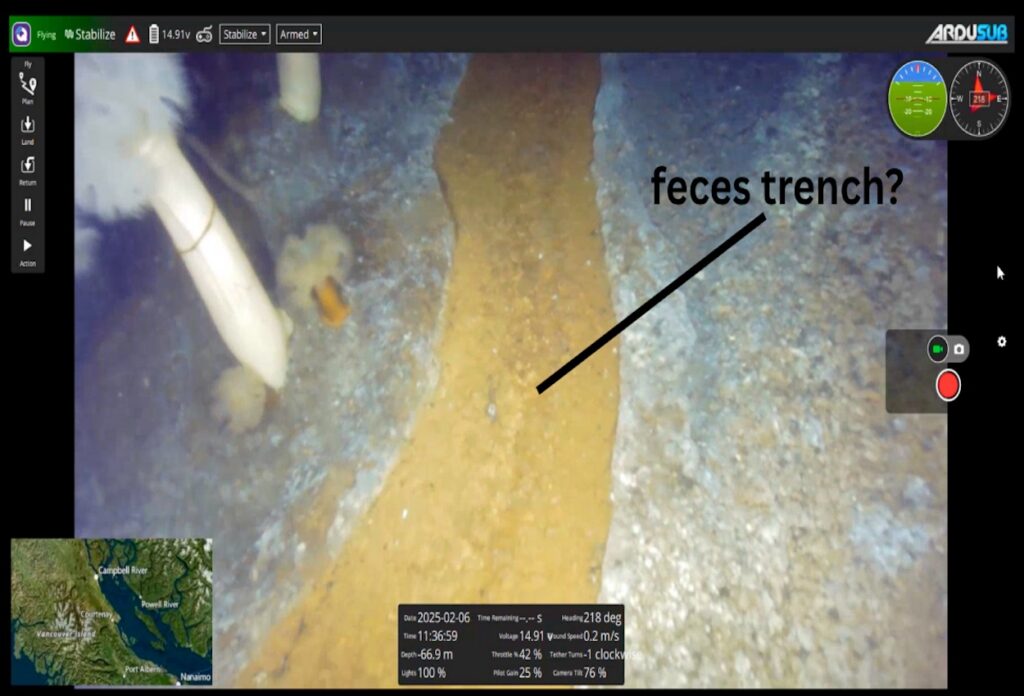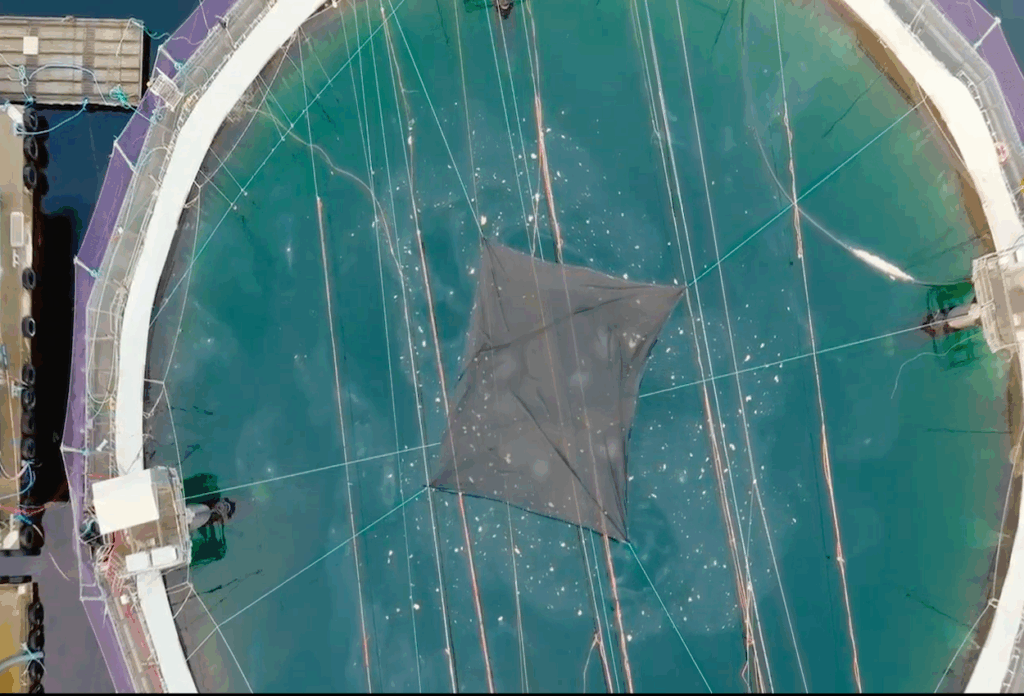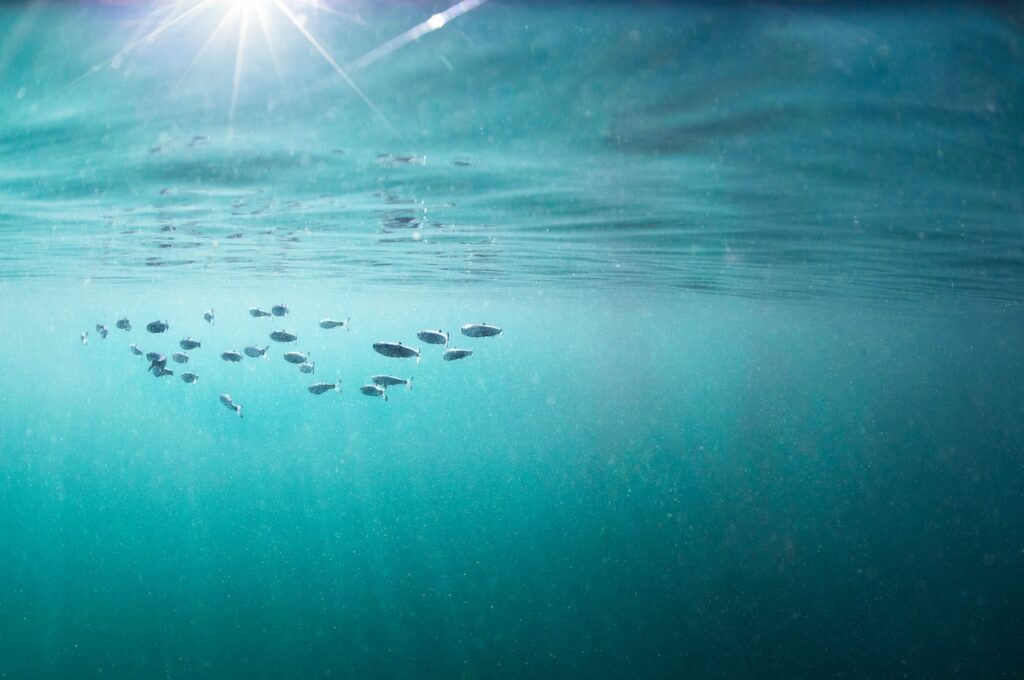An open-pit copper mine in the heart of Clayoquot Sound? A historic gold mine re-opened using modern technology to scour out minerals the old-timers couldn’t get at? Is this the best we can hope for, almost 25 years after the Clayoquot Summer peaceful protests put the region on the map of global ecological hotspots?
Imperial Metals sparked controversy this month when interviewed by CBC for a story on mining. When asked about Imperial’s Clayoquot Sound claims, Vice President Steve Robertson said “those mining projects are very valuable to the company, we feel they’re high priority projects”. Robertson was formerly the manager of Imperial’s Mount Polley Mine, until their tailings dam failed catastrophically in 2014, spilling 25 million cubic metres of toxic tailings and slurry into pristine Quesnel Lake—one of the biggest mining disasters in the world.
Imperial Metals is a Vancouver-based mining company. They acquired mineral tenures in Clayoquot Sound in 2009 and are considering opening two mines in the Clayoquot Sound UNESCO Biosphere Reserve.
Imperial: Clayoquot projects ‘high priority’
First, the Catface Mountain copper mine. Catface is located at the geographic centre of Clayoquot Sound in Ahousaht First Nations territory. Ahousaht are a sovereign Nuu-chah-nulth nation whose territory encompasses much of Clayoquot Sound. The Ahousaht name for Catface Mountain is čitaapii (Chitaapi).
Just this winter Ahousaht announced their land use vision for their traditional territories. It clearly did not include an open pit copper mine right across the channel from their village on Flores Island. A mine operating only 3 kilometres away with audible blasting and bright lights 24/7 has the potential to drastically alter life in the village, with serious and long-term social, health and environmental impacts. Imperial’s proclamation flies in the face of the expressed veto of the Ahousaht people.
Imperial’s second proposal is to re-open the abandoned Fandora gold mine in Tla-o-qui-aht First Nations territory—in Tla-o-qui-aht’s Tranquil Tribal Park. In 2013, Vancouver-based Selkirk Metals (owned by Imperial Metals Corporation) was granted an exploration permit despite a veto from Tla-o-qui-aht. They are not satisfied with the level of consultation by the company or the BC government.
Urgent need to modernize mining legislation
Unfortunately, a First Nations veto on a mining project does not mean the BC government and mining companies will give up. Just look at the case of Tsilhqot’in Nation’s attempts to protect Teztan Biny (Fish Lake) in their territories.
The federal government has twice rejected Taseko’s Prosperity Mine proposal, yet the company is applying for exploration permits to keep the project alive, suing the federal government and seeking unspecified compensation for their decisions, and appealing its court loss regarding defamation charges made against the Wilderness Committee.
And remember, defeating a mine proposal costs communities a million dollars each time.
British Columbia’s Mineral Tenure Act is still based on a ‘free entry’ system which has been abandoned in many other jurisdictions, including Alberta. For over 150 years mining activity has been given priority over virtually all other land uses and generated conflict over mining activity throughout BC. In 2013, the District of Tofino put forward a resolution at the Union of BC Municipalities (UBCM) annual conference calling on the provincial government to work with First Nations, local governments, industry and citizens to modernize BC’s mining laws. The resolution was passed with overwhelming support.
Mining ban needed for Clayoquot Sound
The quest for continued growth on a finite planet is forcing the global commodity market to look for scarce resources in places that were considered off-limits 20-30 years ago. Most of the good ore bodies on the planet have been mined out—companies are now looking to marginal deposits like Catface and Fandora. If not Imperial, if not now; some day, some company will want to try to open these mines in Clayoquot Sound.
Currently, only the BC government has the power to hand out mining permits. Therefore only the BC government has the power to ban mining legally—for now. Clayoquot Action is calling on the province to support the land-use visions of the local First Nations whose rights and title to these lands have never been extinguished. From Ahousaht and Tla-o-qui-aht to the District of Tofino and the Chamber of Commerce—there is a broad consensus that Clayoquot Sound UNESCO Biosphere Reserve is not the right place for mining activities.
Dan Lewis is Executive Director of Clayoquot Action.
You can watch CBC’s full coverage here. The Clayoquot mining story starts at 12:32.
Please sign SumOfUs’ petition to Imperial Metals. Help us reach 50,000 signatures!
